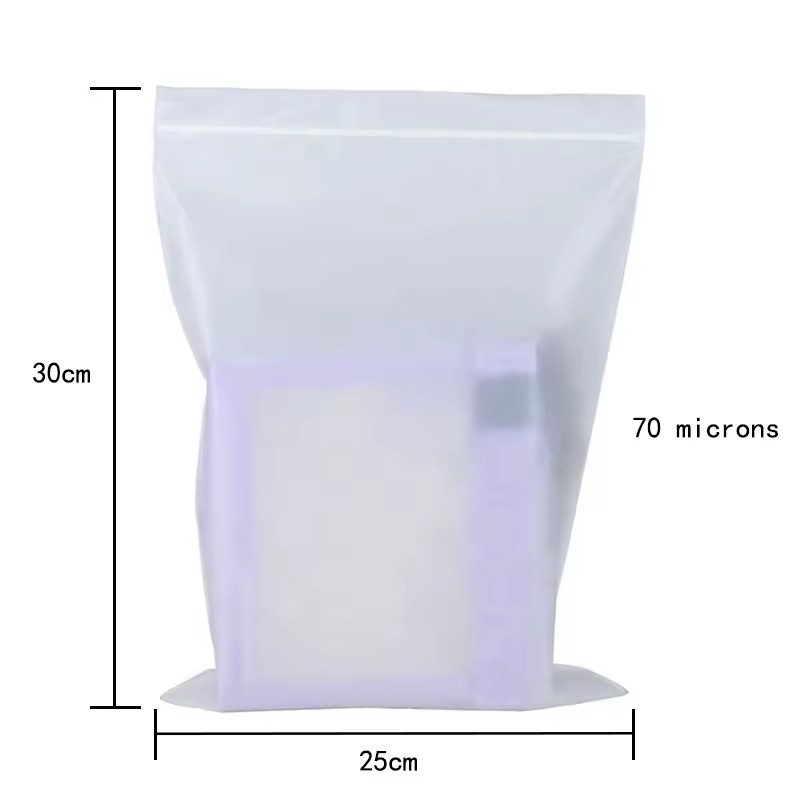Sustainable Storage: The Rise of Biodegradable Zipper Bags
In recent years, the push for more sustainable and eco-friendly products has gained significant momentum. Among the many innovations emerging from this movement are biodegradable zipper bags. These bags, often referred to as compostable zipper bags, are designed to offer the same convenience and utility as traditional plastic zipper bags, but with a much lower environmental impact. This shift towards sustainable storage solutions is not just a trend; it is a necessary evolution in our fight against plastic pollution.

The Environmental Impact of Traditional Zipper Bags
Traditional zipper bags are made from various types of plastic, primarily polyethylene. While these materials are durable and effective at preserving the contents they hold, they pose a severe environmental threat. Plastics can take hundreds of years to decompose, during which time they break down into microplastics that can contaminate soil and water, harming wildlife and ecosystems.
The production of plastic bags also contributes to carbon emissions and the depletion of non-renewable resources. With millions of zipper bags being used and discarded every day, the need for an eco-friendly alternative has never been more urgent.

Enter Biodegradable and Compostable Zipper Bags
Biodegradable zipper bags, often made from materials like PLA (polylactic acid) or PBAT (polybutylene adipate terephthalate), are designed to break down more quickly and safely than traditional plastics. Compostable zipper bags take this a step further; they decompose into non-toxic, organic matter that can enhance soil quality when composted under the right conditions.These innovative materials mimic the functionality of conventional plastic while providing an environmentally friendly disposal option. For consumers, this means they can enjoy the convenience of zipper bags without the associated guilt of contributing to plastic pollution.

The Role of Manufacturers
The rise of biodegradable and compostable zipper bags can largely be attributed to the efforts of dedicated manufacturers. These companies are at the forefront of developing and producing sustainable packaging solutions. A compostable zipper bag manufacturer not only focuses on creating products that meet the functional needs of consumers but also ensures that these products adhere to stringent environmental standards.Manufacturers are investing in research and development to improve the quality and performance of biodegradable materials. This includes enhancing the durability and flexibility of the bags, ensuring they can withstand the rigors of everyday use just like their plastic counterparts. By doing so, they are making it easier for consumers to make the switch to eco-friendly alternatives.
The Wholesale Market
The availability of biodegradable ziplock bags wholesale has played a significant role in making these products more accessible and affordable. By offering these bags in bulk, wholesalers help reduce the cost per unit, making them a viable option for both individual consumers and businesses.
Businesses, in particular, benefit greatly from purchasing biodegradable ziplock bags wholesale. For retailers and food service providers, using eco-friendly packaging can enhance their brand image and appeal to environmentally conscious customers. Moreover, it can help them comply with increasing regulations and consumer demands for sustainable practices.
Consumer Benefits and Adoption
The benefits of switching to biodegradable zipper bags extend beyond environmental impact. For consumers, these bags offer peace of mind, knowing that their choices contribute to a healthier planet. Biodegradable bags are also free from harmful chemicals that can leach into food or the environment, making them a safer option for food storage.
The adoption of compostable zipper bags is steadily increasing as more people become aware of the environmental crisis posed by plastic waste. Educational campaigns and government regulations are driving this change, encouraging consumers to opt for sustainable alternatives.
Challenges and Future Outlook
Despite the many advantages, the transition to biodegradable and compostable zipper bags is not without challenges. One of the primary hurdles is cost. Biodegradable materials can be more expensive to produce than traditional plastics, which can translate to higher prices for consumers. However, as demand grows and production processes become more efficient, these costs are expected to decrease.
Another challenge is ensuring proper disposal. While compostable bags are designed to break down under specific conditions, they may not decompose effectively in conventional landfills. Educating consumers about proper disposal methods, such as industrial composting facilities, is crucial to maximizing the environmental benefits of these products.
Looking ahead, the future of biodegradable and compostable zipper bags appears promising. Advances in material science and increased consumer awareness are driving the market forward. As more people and businesses embrace sustainable storage solutions, we can expect to see a significant reduction in plastic waste and a positive impact on our environment.
Biodegradable and compostable zipper bags represent a significant step towards sustainable storage solutions. By choosing these eco-friendly alternatives, consumers and businesses alike can reduce their environmental footprint and contribute to a cleaner, healthier planet. The rise of biodegradable zipper bags is not just a passing trend; it is a vital part of our collective effort to combat plastic pollution and promote sustainability. As manufacturers continue to innovate and the wholesale market expands, the future of sustainable storage looks bright.






